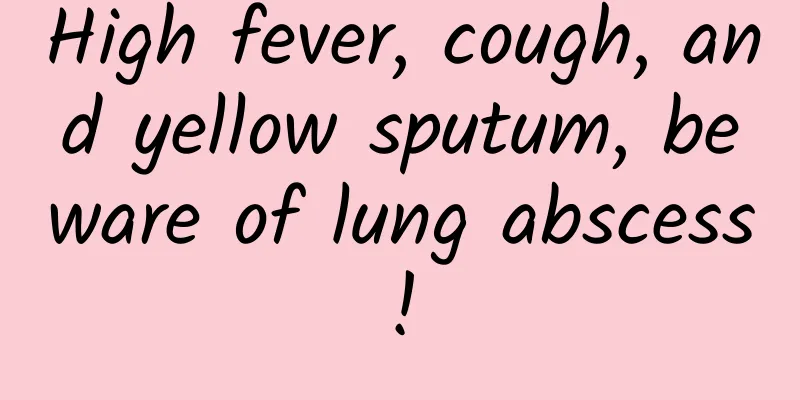What are the Chinese patent medicines for nourishing blood and yin?

|
When it comes to Chinese patent medicines and Chinese medicine, I believe most Chinese people are very familiar with them. After all, using various traditional Chinese medicines for treatment is no longer a new thing. At this time, people can not only use Chinese medicine to decoct and take it. And for the convenience of taking, some Chinese patent medicines can often be used for treatment. What are the Chinese patent medicines that nourish blood and yin? Commonly used Chinese medicines for nourishing the heart and calming the nerves include Chinese jujube seed, cypress seed, poria, julibrissin, polysaccharide, valerian, polygala, etc.; heavy tranquilizers include cinnabar, magnetite, dragon bone, etc. Suggestions: Traditional Chinese medicine often consists of multiple ingredients in a prescription, and is rarely used alone. However, Chinese patent medicine has the advantage of comprehensive conditioning, such as the commonly used ones: Tianwang Buxin Dan, Baizi Yangxin Wan, Zhusha Anshen Wan, and Cizhu Wan. Yin Nourishing Recipes Cordyceps (cordyceps sinensis): nourishes the lungs and kidneys, resolves phlegm and stops sweating Wolfberry: nourishes yin and blood, nourishes essence and improves eyesight American ginseng: promotes the production of body fluids and invigorates the stomach, nourishes the lungs and replenishes deficiency Chinese yam: nourishes the spleen and kidneys, reduces sweat and urine Mulberry parasite: nourishes blood, removes numbness, strengthens muscles and bones Dendrobium: nourishes the lungs and stomach, nourishes yin and improves eyesight Lily: moisturizes the lungs and relieves cough, nourishes the heart and calms the mind Red dates: strengthen the spleen and stomach, nourish the kidneys and produce blood Chestnut: Strengthens the spleen and kidneys, strengthens the waist, and resists aging Codonopsis: Strengthens the spleen and replenishes Qi, promotes the production of body fluids and nourishes blood, and enhances immunity Bird's nest: nourishes the lungs and yin, treats asthenia, aids digestion, and treats night sweats Tremella: nourishes the lungs and produces body fluids, nourishes yin and nourishes the stomach, replenishes qi and strengthens the heart, and nourishes the brain Papaya: eliminates stagnation, clears the intestines, and soothes the liver Spinach: Rich in iron and carotene, it can nourish blood, moisten intestines and aid digestion Warm reminder: There are many Chinese patent medicines that nourish blood and yin. And it needs to be used under the guidance of a doctor to reduce the risk of bone metastasis. It is also recommended that patients can eat some fresh vegetables. Relatively no side effects. It's time to eat fresh papaya and day lily. |
<<: What should pregnant women do if they have a severe nasal congestion due to a cold?
>>: How to treat breast hyperplasia and fibroids?
Recommend
Only farts and no bowel movements after cesarean section
Caesarean section is a relatively common method o...
Five types of women should not eat watermelon
Watermelon is a fruit that can cool down and quen...
How to improve back pain after cesarean section
Caesarean section is very harmful to the mother&#...
What is the laparoscopic surgery procedure for ovarian cysts?
Laparoscopy is currently a good way to treat fema...
In the cold winter, elderly people should be more careful when exercising!
Regular physical activity is an essential compone...
What to do if a woman's private parts are black
The main reason for the darkening of female priva...
Early symptoms of pituitary tumors in women
Nowadays, the frequency of pituitary tumors is ge...
How to check if ovulation has occurred by vaginal ultrasound
Women need to pay attention to many things during...
Female vaginal discharge with blood
If a woman's vaginal secretions contain blood...
Is vaginal tightening exercise useful?
For women, the vagina is very important. Menstrua...
What to do if a pregnant woman has inflammation in her body
Generally speaking, after a woman has sex, she sh...
Can you fish in a river with fast currents? How to fish in a river with fast currents?
It may be that the "textbook" platform ...
[Medical Q&A] Are obese patients at higher risk for anesthesia?
Planner: Chinese Medical Association Reviewer: Lu...
What causes diarrhea during menstruation?
When women reach their menstrual period, their bo...
Throat pain may be a symptom of life
This is the 4822nd article of Da Yi Xiao Hu Recen...









